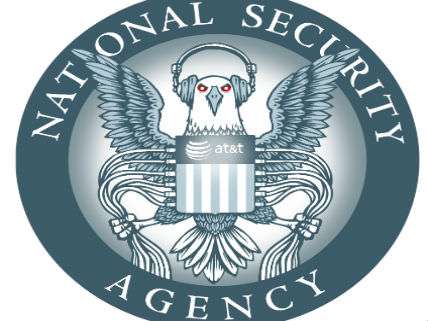Charlie Hebdo Murders Do Not Justify NSA Domestic Spying

Over at Defense One, an article cites various members of Congress who are using the murders of Charlie Hebdo cartoonists at as an excuse to derail efforts to reform and rein in National Security Agency (NSA) domestic spying. From Defense One:
"To me, Congress having oversight certainly is important, but what is more important relative to these types of events is ensuring we don't overly hamstring the NSA's ability to collect this kind of information in advance and keep these kinds of activities from occurring," Sen. Bob Corker, chairman of the Senate Committee on Foreign Relations, told National Journal.
Corker said that in recent months, public support for the NSA has been fading as national security risks increase, a dangerous prospect for stopping future terrorism plots. The only way public opinion changes, Corker says, is for the American people to be reminded that threats still exist.
"I think events like [the shooting in Paris] and people's recognition that the only way to keep those from happening is through outstanding intelligence-gathering. That alone, unfortunately, does shape people's opinions," Corker said.
Sen. Lindsey Graham, R-S.C., also sent out a strongly worded statement following the attacks, urging Congress to reevaluate its attitude toward the national security community.
"I fear our intelligence capabilities, those designed to prevent such an attack from taking place on our shores, are quickly eroding," Graham said. "I believe our national security infrastructure designed to prevent these types of attacks from occurring is under siege."
The senators are overlooking one important fact: NSA domestic spying hasn't prevented any terrorist attacks in the United States. As I report in my article, "Abolish the Intelligence-Industrial Complex":
In response to [NSA whistleblower Edward] Snowden's revelations, NSA director Keith Alexander essentially lied to Congress when he claimed that the NSA's spying had contributed to thwarting 54 terrorist plots. In January, 2014, the New America Foundation think-tank issued a report that concluded that NSA domestic spying had had "no discernible impact on preventing acts of terrorism." It certainly had no discernible impact on thwarting the Boston Marathon bombings in 2013 or the would-be Christmas jetliner bomber in 2009.
Also in January, President Obama's own Privacy and Civil Liberties Oversight Board (PCLOB) issued a report on the NSA's domestic spying program that damningly found, "We have not identified a single instance involving a threat to the United States in which the telephone records program made a concrete difference in the outcome of a counterterrorism investigation." The report added, "Moreover, we are aware of no instance in which the program directly contributed to the discovery of a previously unknown terrorist plot or the disruption of a terrorist attack."
In addition, I pointed out:
Similarly, in December President Obama's own hand-picked Review Group on Intelligence and Communications Technologies issued a report that found the NSA domestic spying was "not essential to preventing attacks." But more importantly, the Review Group worried if there is another significant terrorist attack that "many Americans, in the fear and heat of the moment, might support new restrictions on civil liberties and privacy." They added, "The powerful existing and potential capabilities of our intelligence and law enforcement agencies might be unleashed without adequate controls. Once unleashed, it could be difficult to roll back these sacrifices of freedom."
The Review Group was prescient: Now the NSA-enablers in the Senate are trying to use the Charlie Hebdo tragedy to scare Americans into foregoing their constitutional right to be free from pervasive government surveillance.


Show Comments (34)